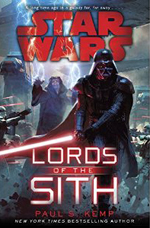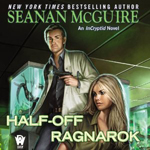
 Puttering About in a Strange Land
Puttering About in a Strange Land
By Philip K. Dick; Performed by Luke Daniels, Kate Rudd, Amy McFadden
Publisher: Brilliance Audio
[UNABRIDGED] – 11 hours
Themes: / marriage / boarding school / literary / infidelity /
Publisher summary:
When Roger and Virginia Lindhal enroll their son Gregg in Mrs. Alt’s Los Padres Valley School in the mountains of Southern California, their marriage is already in deep trouble. Then the Lindhals meet Chic and Liz Bonner, whose two sons also board at Mrs. Alt’s school. The meeting is a catalyst for a complicated series of emotions and traumas, set against the backdrop of suburban Los Angeles in the early fifties. The buildup of emotional intensity and the finely observed characterizations are hallmarks of Philip K. Dick’s work.This is a realistic novel filled with details of everyday life and skillfully told from three points of view. It is powerful, eloquent, and gripping.
Puttering About in a Small Land (written 1957 but first published in 1985) feels very different from Philip K Dick’s usual stuff. It’s a dark and funny slow-burn set in 1950s Southern California, but there are no simulacra, no time slips, and no telepaths, and the only artificial reality is the one built out of society’s expectations of suburban married life.
It also seems unusually sensitive for PKD – not in a corny or sentimental way but just finely tuned into human relationships. He captures the subtle and imperfect communications of a dysfunctional marriage where two people are pretending to work together but are really pushing and pulling below the surface, wanting different things and resenting each other for it.
“I’ll be back pretty soon,” he said. From his eyes shone the leisurely, confident look; it was the sly quality that always annoyed her.
“I thought maybe we could talk,” she said.
He stood at the door, his hands in his pockets, his head tilted on one side. And he waited, showing his endurance, not arguing with her, simply standing. Like an animal, she thought. An inert, unspeaking, determined thing, remembering that it can get what it wants if it just waits.
“I’ll see you,” he said, opening the door to the hall.
“All right,” she said.
The story is told in three alternating points of view: Roger, his wife Virginia, and the “other woman” Liz. All three are trapped, one way or another, in self-made realities they don’t enjoy.
Some readers complain that PKD writes unflattering female characters, and as usual these ones aren’t much to admire: Virginia is gossipy and judgmental, her mother is a controlling nag (who often corners Roger and has some of the funniest scenes in the book), and Liz Bonner is so naïve and childlike she verges on the idiotic.
“She’s sort of a—” Mrs Alt searched for the word. “I don’t want to say lunatic. That isn’t it. She’s sort of an idiot with a touch of mysticism.”
But even so, Virginia has her strengths, and Liz Bonner is lovely in a quirky way. Her flaws and naïve unpredictability are exactly what free her from society’s expectations, and are what attract Roger. Despite the deceit and infidelity, their love story is somehow still beautiful.
And to be fair, PKD also writes pretty unflattering men. For example, Roger not only cheats on his wife, he also abandoned his previous wife and daughter and seems to be a compulsive liar. He’s a bristly, bad-tempered, and indifferent to his wife’s gestures of love and compromise. All he really cares about his TV retail-and-repair business, which is where the book title comes from: he’s a little king “puttering about in a small land.”
The waning of a marriage and infidelity appear in a lot of PKD’s stories, but in this one they really drive this plot. Normally I wouldn’t try to detect an author’s own life in his fiction, but since PKD has openly admitted he weaves autobiographical details into all his stories, it seems safe to see something of him in Roger.
His essay “How to Build a Universe That Doesn’t Fall Apart Two Days Later” might give some more clues to his approach to fiction set in the real world. Just because the characters’ universe is based in reality doesn’t mean PKD won’t try to disintegrate it.
“I like to build universes which do fall apart. I like to see them come unglued, and I like to see how the characters in the novels cope with this problem. I have a secret love of chaos. There should be more of it. Do not believe—and I am dead serious when I say this—do not assume that order and stability are always good, in a society or in a universe. … Unless we can psychologically accommodate change, we ourselves begin to die, inwardly. What I am saying is that objects, customs, habits, and ways of life must perish so that the authentic human being can live.”
I listened to Puttering About in a Small Land on audio and read the print version too. The audiobook was read by Amy McFadden, Kate Rudd, and Luke Daniels, one for each of the main characters. All three were great, although using three narrators didn’t work so well for me since the story is in third-person. Hearing the same characters read three slightly different ways gave the audiobook a patchwork feel and was a bit jarring and distracting sometimes.
I’d recommend Puttering About in a Small Land for PKD fans but not so much as an entry to his works. For anyone who knows his style, it’s very cool to see a more subtle side of him and to see how beautifully he can write about human relationships in the artificial universe we call reality. Definitely worth the read.
Posted by Marissa van Uden
 Sea of Silver Light (Otherland Book #4)
Sea of Silver Light (Otherland Book #4) Lords of the Sith (Star Wars)
Lords of the Sith (Star Wars) Half-Off Ragnarok (InCryptid #3)
Half-Off Ragnarok (InCryptid #3) Queen of Fire (Raven’s Shadow #3)
Queen of Fire (Raven’s Shadow #3) Mountain of Black Glass (Otherland #3)
Mountain of Black Glass (Otherland #3)